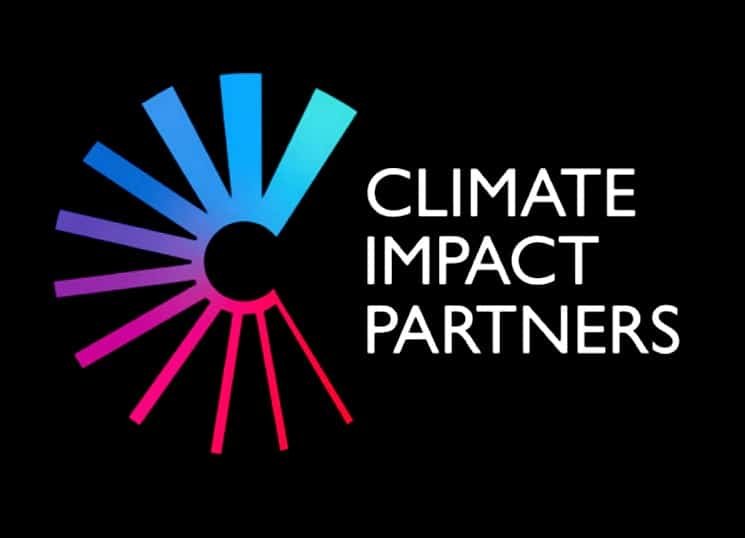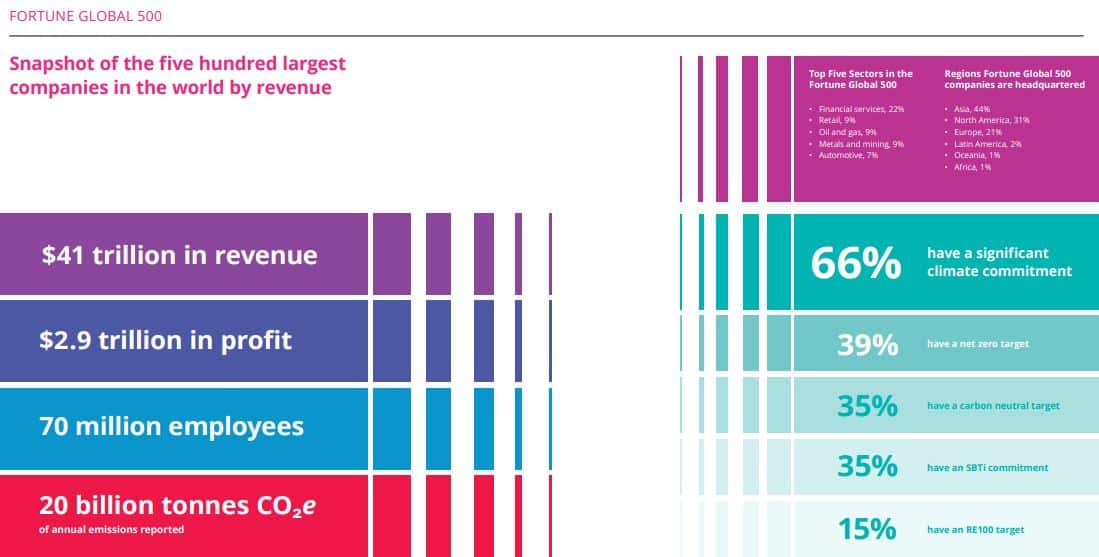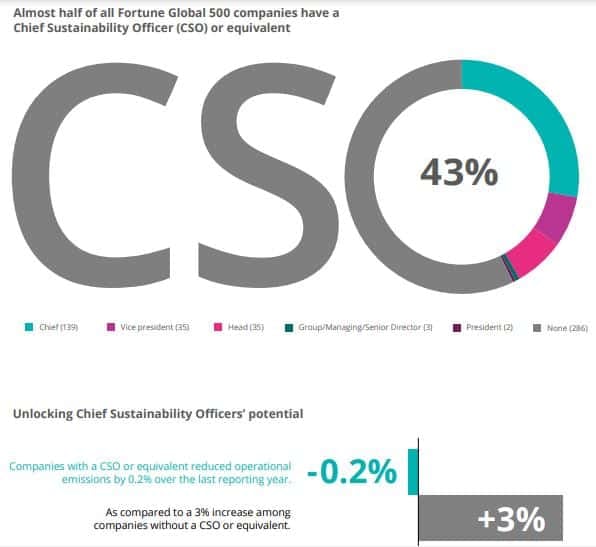A study by a leading global carbon finance organization, Climate Impact Partners, revealed that the climate commitments of Fortune Global 500 companies are stalling. The report also showed that businesses that reduced emissions earned about $1 billion more in profit than those that didn’t.
Amid the rising global warming, urgent action from the world’s largest companies is crucial in meeting global climate goals. But there’s no increase in the number of companies with 2030 targets and there’s only a 3% increase in those that have 2050 commitments, the study found.
Climate Impact Partners develops and delivers high-quality and high-impact carbon-financed projects for climate action. The company committed to delivering 1 billion tonnes of emissions reductions, supporting 600+ carbon removal and reduction projects worldwide.
Fortune 500 companies covered in the study are defined as follows:
More Companies Report Emissions and Targets Lead to Reductions
There has been a steady rise in corporate climate commitments but the number of Fortune Global 500 businesses with a significant climate commitment has stagnated at around 66%.
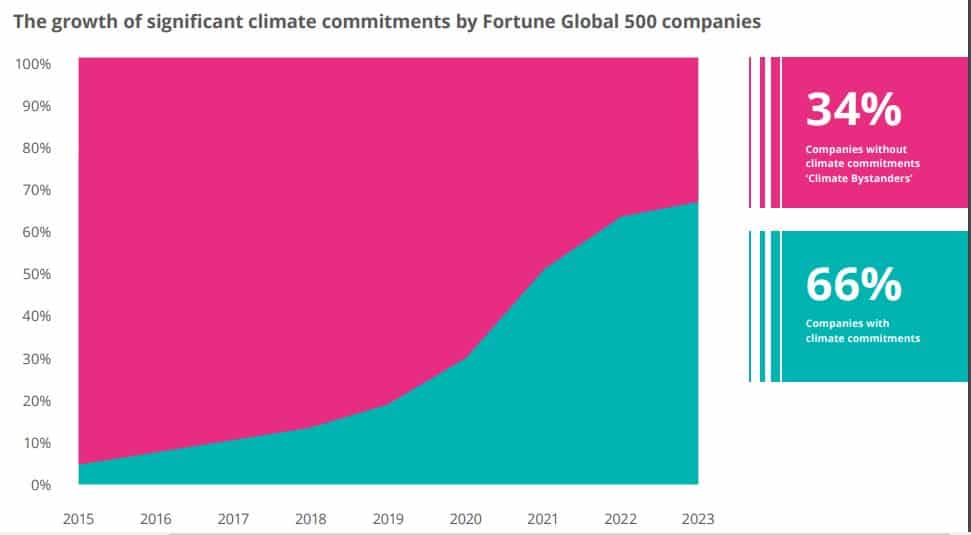
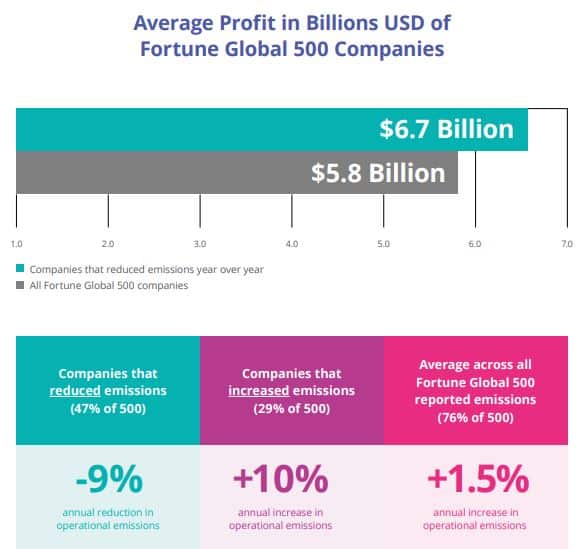
“At this critical juncture, we need companies to lean in, not pull away. The good news is that we have found clear markers for the companies making the most positive impact on emissions today, serving as an example for others to follow.”
One major marker is that more top-earning companies are now reporting their carbon emissions.
- 76% of the companies are reporting annual emissions year over year, with 55% reporting some form of Scope 3 and 23% completing Scope 3 reporting.
Scope 3 emissions account for 90% of the companies’ total reported footprint.
Fewer than 5 in 10 Climate Bystanders report any emissions data while over 9 in 10 companies with commitments do. Most of the Fortune 500 companies that report complete Scope 3 emissions also have significant climate commitments.
Another notable marker is that setting 2030 climate targets leads to significant emissions reductions. Businesses with a 2030 or sooner target managed to lower operational emissions by 7% year over year.
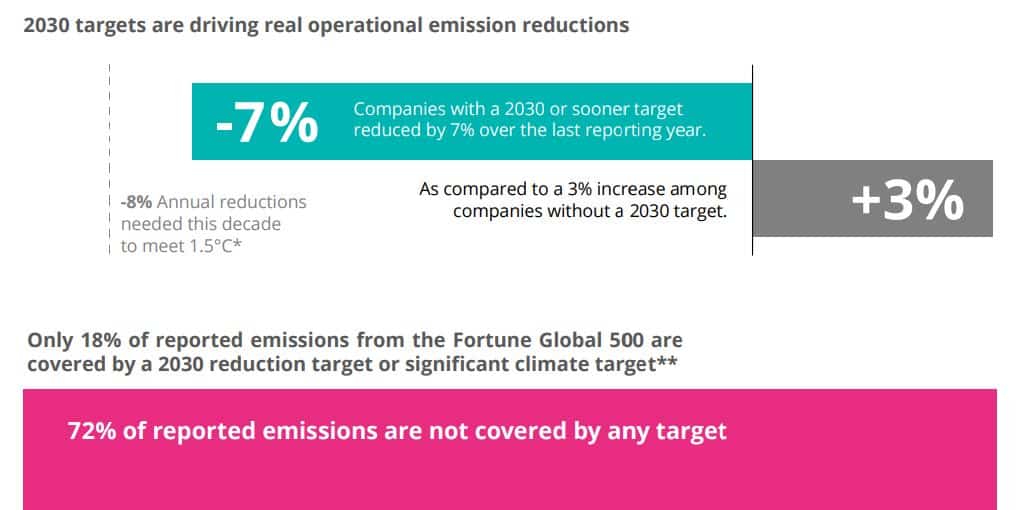
CSOs Drive Earlier Climate Targets
The report also discovered that 43% of top companies have a Chief Sustainability Officer (CSO) or equivalent. With these officers in place, businesses set net zero, carbon neutral, and other climate commitments sooner, 7, and 3 years respectively.
Climate bystanders, those without set targets, and without a CSO reported an increase in emissions by 3%. Thus, this new sustainability role “is expected to increasingly deliver greater impact”, the report said.
That’s mainly because CSOs aid companies in developing more ambitious climate targets and action plans than those without.
Lastly, the study concluded that Europe leads the way with 108 out of 112 Fortune 500 list with climate pledges.
The U.S. and China have the most businesses in the surveyed companies. 74% of top companies in the U.S. have voluntary climate goals while only 15% of those in China have.
Between net zero and carbon neutral pledges, net zero goals are more popular among new commitments across Europe and North America; carbon neutral targets are preferred in Asia.
While corporate climate commitments remain stagnant, this study emphasizes the financial benefits of emissions reductions for businesses. With urgent action needed to address global warming, this report serves as a call for companies to lean into climate action and explore the financial gains of reducing emissions.

